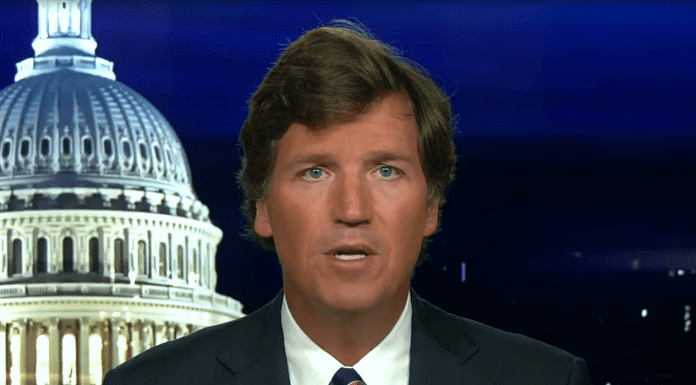(Headline USA) Democrats plan to move quickly on one of the first bills of the new Congress, citing the need for federal election standards.
States have long had disparate rules for running elections. But the 2020 election, which featured lawless pandemic-disguised changes to ease voter fraud, underscored the differences from state to state.
Democrats, asserting constitutional authority to set the time, place and manner of federal elections, want national rules they say would make voting more uniform, accessible and fair across the nation.
“We have just literally seen an attack on our own democracy,” said Sen. Amy Klobuchar, D-Minn., referring to the Jan. 6 protest at the US Capitol. “I cannot think of a more timely moment to start moving on democracy reform.”
The bill would mandate early voting, same-day registration and other long-sought reforms that Republicans reject as federal overreach.
The For the People Act, first introduced two years ago, also would give independent commissions the job of drawing congressional districts, require political groups to disclose high-dollar donors, create reporting requirements for online political ads, and obligate presidents to disclose their tax returns.
Fox News host Tucker Carlson said in a monologue that the 800-page bill would “enshrine fraud” in America’s elections, Fox News reported.
“The For The People Act is the foundation of the Democratic Party strategy to control the federal government well into your grandchildren’s middle age. Take a look at it,” he said.
Republican opposition was fierce during the last session.
At the time, then-Senate Majority Leader Mitch McConnell, R-Ky., labeled it the “Democrat Politician Protection Act” and said in an op-ed that Democrats were seeking to “change the rules of American politics to benefit one party.”
Carlson said Congress does not have blanket authority to rewrite state elections laws.
“Like most revolutionary documents, it’s not a very exciting read—nothing sounds especially radical at first,” he said. “The bill begins by declaring that—contrary to Article I of the United States Constitution—Congress has an ‘ultimate supervisory power over federal elections.'”
Under the current system, “states get to decide how much fraud they will tolerate: Florida requires you to show photo identification in order to vote. California just wants you to vote Democrat,” Carlson said.
“If H.R. 1 passes, all 50 states will be California—the entire country will have ballot harvesting and mail-in voting. Think about that.”
While Democrats control Congress for the first time in a decade, the measure’s fate depends on whether enough Republicans can be persuaded to reconsider a bill they have repeatedly rejected.
If not, Democrats could decide it’s time to take the extraordinary step of eliminating the Senate filibuster, a procedural tool used by the minority party to block bills under rules that require 60 votes to advance legislation.
But at least two Democrat senators—Arizona’s Kyrsten Sinema and West Virginia’s Joe Manchin—have pledged to oppose ending the fillibuster.
Advocates claim the bill is the most consequential piece of voting legislation since the Voting Rights Act of 1965.
House Democrats vowed two years ago to make the bill a priority, and they reintroduced it this month as H.R. 1, underscoring its importance to the party.
Carlson said the legislation ignores every concern that Americans had with the 2020 election and ensures that civil unrest will escalate.
“They saw the radical increase in mail-in voting, and it corroded the public’s faith in the system of our of elections. They were enraged by that and some of them exploded,” Carlson said, referring to protesters who entered the Capitol on Jan. 6.
“According to the Democrats, the lesson of that terrible day was that we needed more of the corrupt policies that caused it in the first place,” Carlson said. “We need more mail-in voting, we need more ballot harvesting: More corruption! That will unite the country.”
Current plans would have the full House take up the bill as soon as the first week of February.
The Senate Rules Committee would then consider a companion bill introduced in the Senate, and a tie vote there could allow it to move out of committee and to the floor as early as next month, said Klobuchar, who is expected to become the committee’s next chair.
A quick vote would be remarkable considering the Senate also is likely to be juggling Trump’s second impeachment trial, confirmation of President Joe Biden’s Cabinet choices and another round of coronavirus relief.
But Republican officials like Alabama Secretary of State John Merrill remain opposed. Merrill said the federal government’s role is limited and that states must be allowed to innovate and implement their own voting rules.
“Those decisions are best left up to the states, and I think the states are the ones that should determine what course of action they should take,” Merrill said, noting that Alabama has increased voter registration and participation without implementing early voting.
“To just say that everything needs to be uniform, that’s not the United States of America,” Merrill said.
The bill would remove photo identification requirements, mandate mail-in voting, and legalize ballot harvesting nationwide.
“Under H.R. 1, [people] could freely go house to house and apartment to apartment collecting unknown thousands of ballots and then dump them all in a ballot dropbox,” Carlson said. “No one would have any idea if those ballots had been tampered with at any point along the way or would there be any way to prove it if they had been tampered with.”
The bill would restrict whistleblower complaints, too.
“H.R. 1 also makes it harder for election observers to file complaints about any of this because complaining is racist.”
Carlson said that nations with left-wing governments, like Canada and France, restrict mail-in voting because they know that it is a low-integrity practice.
“A system like that is suicidal for democracy and no other free country would tolerate it.”
Adapted from reporting by the Associated Press.

